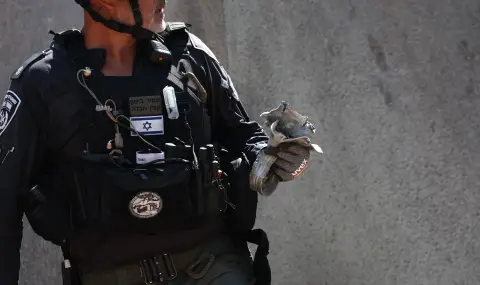"Military Situation” - this is how the EU's top diplomat, Josep Borrell, described what is happening in southern Lebanon, where Israel is striking targets believed to be central to Hezbollah. According to the Lebanese Ministry of Health, about 500 people were killed in the attacks, including about 60 women and 40 children. Over 1,600 people have been injured, and tens of thousands have been displaced - most seeking refuge in the capital, Beirut.
At the same time, Hezbollah continues to bomb Israel. Over the weekend, the Islamist group fired rockets at Israeli cities far from the border, such as Nazareth and Haifa. Most of the missiles were intercepted by anti-aircraft defenses.
Military problems for Hezbollah
Israel seems to have created problems for Hezbollah militarily. The organization has been "significantly weakened,", US administration officials told CNN. The Lebanese journalist Roni Chatta is of the same opinion - Hezbollah's weapons of recent years have most likely been largely destroyed. "This includes Hezbollah's secret services, as well as its military capabilities, not to mention the communication systems, which were based mostly on pagers,” Chatta told DV.
For now, there is no way to say for sure how much Hezbollah has been weakened, writes "Jerusalem Post”. There are several possibilities noted by the Israeli newspaper - Hezbollah has either lost some of its missile launchers or is currently unable to coordinate them. There is another option - that the group does not want to reveal its full capabilities. Hezbollah still has a large arsenal of missiles. However, this does not mean that he has the capacity to direct them.
The breakdown in electronic communications due to the mass explosion of pagers and radios last week is likely to have hit Hezbollah hard, says Bente Scheller, head of the Middle East and Africa department at the Heinrich Böhl Foundation. "It has also lost commanders and fighters it cannot easily replace. All this weakens Hezbollah”.
What did Israel's attack do to Lebanese society?
In Lebanon, the Hezbollah-affiliated media have not commented clearly on the situation. However, other media criticized the leader of the terrorist organization, Hassan Nasrallah, for weakening Lebanon's security. In this sense, the group should not be surprised if part of the country's society gloats that Hezbollah is losing its military capabilities. The Lebanese newspaper "An Nahar” writes that Nasrallah should reconsider his threat to start a war because Lebanese society will pay the price.
According to Rony Chata in Lebanon, Hezbollah can count on serious support from people who believe that the group's struggle is righteous. "Recently, however, this support has not been growing. But he is not losing weight. However, there is probably empathy for the dead civilians. With such solidarity, the borders blur”. According to Bente Scheller, many Lebanese consider the attack on the pagers an attack on the entire country. "Israel has achieved its goal of weakening Hezbollah's military power, but it is not clear how things will proceed now and how negotiations, which are very important for Israel's security, could be reached.
At the same time, part of Lebanese society feels that Iran is no longer supporting Hezbollah - something the group used to be proud of, reports the Arab newspaper "Asharq al-Awsat”.
What is Israel aiming for?
According to the director of the program for the Middle East and North Africa of the British think tank "Chatham House” Sanam Vakil Israel is "looking for a way to bring its displaced citizens back to the northern part of the country”. According to the expert, there are three goals that motivate Israel to act right now.
"First of all, Israel is trying to separate the war in Gaza from the Hezbollah front,” says Vakil. The problem is that the Israeli authorities are unable to reach a cease-fire agreement in Gaza, but they also cannot agree with Hezbollah because of the war in Gaza. "In addition, Israel is, of course, exposed to a constant threat from Hezbollah,”, adds the expert.
Nearly a year after the start of the war in Gaza, the international focus has shifted, despite the ongoing fighting and the more than 90 hostages who remain captive to Hamas, Vakil points out. "Israel has no strategy for withdrawing from Gaza and has not made clear what its plans are for the future, and certainly is not talking about an Israeli-Palestinian process," says the analyst. According to her, the war in Lebanon "distracts attention from the lack of strategy in Gaza".
